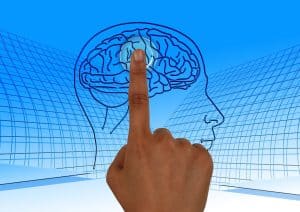
Scientists identify new form of dementia
pharmafile | May 1, 2019 | News story | Research and Development | AD, Alzheimer's, dementia, late, neuroscience
A team of scientists from Britain and the United States have described a new form of dementia, according to a study published in the journal Brain.
The researchers are calling the disorder ‘limbic-predominant age-related TDP-43 encephalopathy’ or LATE for short.
While similar to Alzheimer’s disease, the disorder, which is generally found in the ‘oldest-old’, is separate from Alzheimer’s.
Nevertheless, the researchers believe that many cases of LATE may have been mistaken for Alzheimer’s disease in the past.
While LATE and Alzheimer’s are similar in regards to the effects they have on patient’s cognitive functions, they affect patient’s brains in different ways.
While the brains of Alzheimer’s patients are marked by the build-up of TAU and amyloid-β plaques, the researchers found that patients with LATE have an accumulation of the protein TDP-43 in their brains.
However patients with LATE neuropathological change (LATE-NC) may also have build-ups of TAU and amyloid-β plaques. LATE is often comorbid with Alzheimer’s disease, the study says.
The researchers believe that LATE-NC is present in more than 20% of individuals older than 80. This figure could be as high as 50% the study says.
“LATE probably responds to different treatments than AD, which might help explain why so many past Alzheimer’s drugs have failed in clinical trials,” Dr Peter Nelson of the Sanders-Brown Center on Aging at the University of Kentucky, said.
“Now that the scientific community is on the same page about LATE, further research into the ‘how’ and ‘why’ can help us develop disease-specific drugs that target the right patients.”
Louis Goss
Related Content

Vesper Bio reports positive topline results for dementia candidate
Vesper Bio, a clinical-stage biotech developing novel oral therapies for neurodegenerative and neuropsychiatric disorders, has …

Lilly’s drug for early Alzheimer’s shows promising results
Eli Lilly (Lilly) has announced positive new data from the long-term extension of its phase …

Mental health medicine use in England reaches record high, NHSBSA report reveals
According to new data published by the NHS Business Services Authority (NHSBSA), mental health prescriptions …






